By: Faradesiva Angger Putri Maulida, S. IP, A Researcher, Center for Policy, Business, and International Studies
The dispute between India-Pakistan over Kashmir has begun since1947. The root of conflict itself came from both of countries shared colonial past, when Britain ruled most of Indian sub-continent in 17th until 20th century.
After some periods, Britain’s power over their colonies weakened, alongside with growing nationalist movement threatening them, making them granting their wish—forming an independent country.
Albeit Britain completely ended their rule in India after World War II on 1948, Their separate electorates have made Moslem citizens went into minority status, years before their role’s ended.
Also Read: Sheikh Muhammad Amin al-Husseini: The Palestinian Mufti in Indonesia’s Independence History
In consequence, there was a demand for a separate nation for India’s Moslem population in 1945—followed by religious riots that broke out across British-India.
Tens of thousands dead in this incident, and British alongside with Indian began seriously consider partition of the continent based on religion (Copland, 1991). Therefore, on August 14th 1947, Pakistan was formed, and Hindu-majority independent nation of India followed the next day.
After their independence declared, more than 550 princely states within colonial India that were not directly governed by Britain—one of them is Kashmir, could decide to join either new nations, or remain independent (Menon, 2019).
Yet, Pro-Pakistani rebels took over western Kashmir and the Maharaja of Kashmir, Hari Singh, asked of India’s help. India’s respond was quite interesting; helping them means Kashmir should join as their dominion, and received special status within Indian constitution, guaranteed that Kashmir would have an independence over everything but communications, foreign affairs, and defense.
Also Read: Celebrating 200th Java War: Novelty Spirit of 2013 Memory of The World
However, this special status was revoked by the Indian government in August 2019, making a new move that tighten India’s control over Kashmir.
Peace Building Initiatives: Likeable Solution and a Visionary Third Party
The peace building of conflict resolution process between India and Pakistan dates back to the 1948, but so far, both of countries have failed to reach any final settlement on the issue.
This also includes confidence-building measures at a nation-state level between the governments of India and Pakistan, two-track diplomacy, as well as initiatives by non-governmental organizations (NGOs), institutions and individuals. The purpose of peacebuilding in Kashmir itself includes conflict prevention and reduction of hostilities in the Kashmir Valley (Chari, 2011).
Also Read: History, Islam, and the Culture of the Kazakhstan: Abai as a National Inspiration
The Kashmir conflict itself divided the region into two parts; namely India-administered Kashmir in the East, and Pakistan-administered Kashmir—also known as Azad Kashmir in the West (Bose, 2009).
This raises a possible solution in the form of dividing the Kashmir region into two countries according to their administrative areas. Of course, this solution will be considered unfavorable for the Kashmir region and its inhabitants, yet, there are things that can be done to elevate the region’s status. One of them is a policy that makes it easier for Kashmiris when they want to visit Pakistan or India without a visa.
Apart from that, export-import and rebuilding the city can also be facilitated by both of states as a form of respect for the Kashmir region which has been divided into two parts.
The solution above obviously requires assistance from a third party, to facilitate the agreement that will be carried out. Based on author’s research, the state will play a more effective role than supra-national entities—such as what UN did through article 370.
Also Read: Boycotting Israeli-Affiliated Products: A Moral Stance and a Form of Supporting Justice
This is because state as a third party will have a ‘personal touch’ to both of the countries and build trust from the parties involved.
Unfortunately, the existence of state as a third party in Kashmir conflict itself was considered as “complicated”. This is because many countries such as Russia, United States and China have also played a de-escalatory role with regard to tensions in the region.
These things have made both India and Pakistan find it harder to grow the confidence building measures for Kashmir issue. With this situation, India and Pakistan certainly have a trust issue with countries that will become the third party as facilitator.
Undeniably, to become a third party in this condition, India and Pakistan need a state that does not have interests on them. In this case, the author believes Indonesia can be the strongest candidate to become the facilitator in this peace process.
Also Read: 77 Years Since Nakba, Palestinian Population Grows Tenfold
Several factors that emphasize this can be found from Indonesia’s relationship with both parties. First, Indonesia and India have established a good relation, especially since 2018 until now, after Prime Minister Modi’s visit to Jakarta two years ago (The Jakarta Post, 2018).
In addition, Indonesia’s relations with Pakistan is also in a good term, as can be seen from President Joko Widodo’s visit to the South Asia region in 2018 (Kabir, 2018), as well as bilateral relations between the two countries discussing trade in early 2020.
This was explained by Consul General of Indonesia, Totok Prianamto: “Being an official representative of Indonesia, one of the tasks given to me is to further strengthen the economic, trade and investment relations between the two countries.” (The Nation, 2020).
The two evidences of this closeness also show that Indonesia is able to act as an intermediary who does not take sides with only one of them, and can act fairly.
Also Read: Indonesia Must Do More Than Evacuate, Gaza Needs Us to Act Now
The second factor comes from historical perspective; Indonesia’s involvement in the Non-Aligned Movement, which strengthens Indonesia’s position to become a mediator without leaning towards one party. The Non-Aligned Movement itself is also an organization that becomes the forerunner of Indonesia’s closeness to the South Asian region.
The third factor is the most important; being a mediator or facilitator is actually one of the ways to maintain world peace—as embodied in Indonesian constitution, which is written in the Preamble of the 1945 Constitution Paragraph 4, which states “…in order to advance general prosperity, to develop the nation’s intellectual life, and to contribute to the implementation of a world order based on freedom, lasting peace and social justice,…”.
Indonesia itself is also well known in the international community as a reliable mediator, because it plays an active role in matters related to world peace, and well-known with their “If it is not from us, who else?” spirit. By doing this, Indonesia not only fulfils Its constitutive mandate but also settles Its feet for greater international recognition.
The Kashmir conflict between India and Pakistan has so far not found any common ground and is getting heated due to the removal of “special status” by India, plus the minor involvement of other interested countries.
Also Read: The Recitation of Surah Al-Isra from Jakarta for Palestine
This can be overcome by dividing the Kashmir region into two as the territory that has been claimed for a long time. Then, in order to help Kashmir, several policies; visas, export-import, and re-building the city can be granted and supported by both parties.
To achieve this, a visionary third party is needed as a mediator without having interests on both sides. In this case, Indonesia could be the strongest candidate because of its close relationship with both parties, historically also being part of the Non-Aligned Movement, and in accordance with the Indonesian constitution—to maintain world peace with the spirit of “If it is not us, who else?”.
Building of trust is the key in order to secure benefits of peace and cooperation. If the parties in a conflict are unable to learn lessons from the dynamics of conflicts failures and successes, it becomes difficult to stabilize political, economic, and security relations parties who are in the process of resolving the conflict.
Then, the most important thing, the involvement of different segments of society in India and Pakistan is essential for the conflict resolution.
Also Read: The Importance of Environmental Awareness in Da’wah
Last but not least, will both countries allow Indonesia to be the third party of this issue and will Indonesia willingly be the third party in this peace building initiatives? The answer lies beneath them. (AK/RE1)
Mi’raj News Agency (MINA)






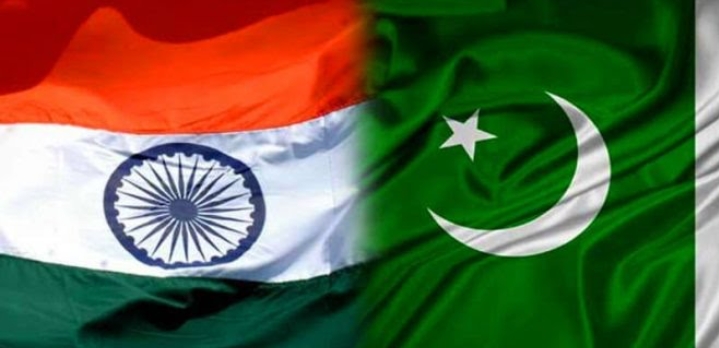





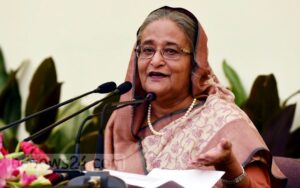



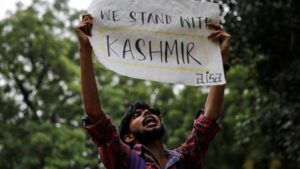
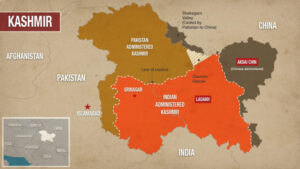
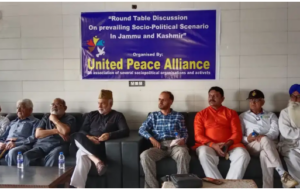
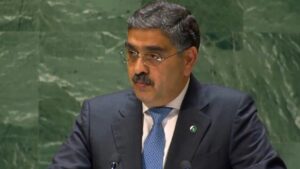













 Mina Indonesia
Mina Indonesia Mina Arabic
Mina Arabic